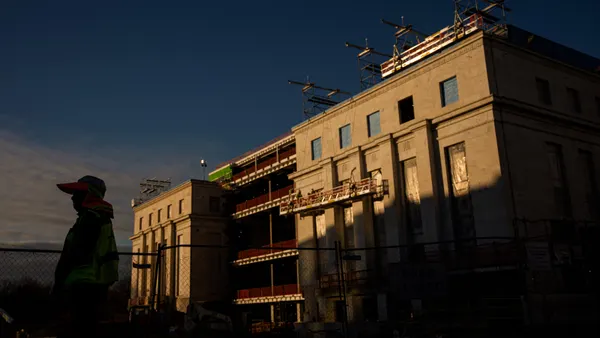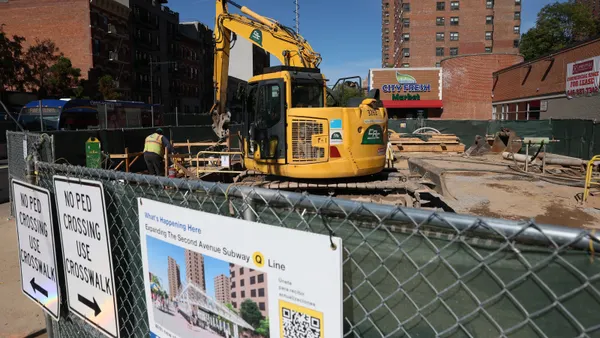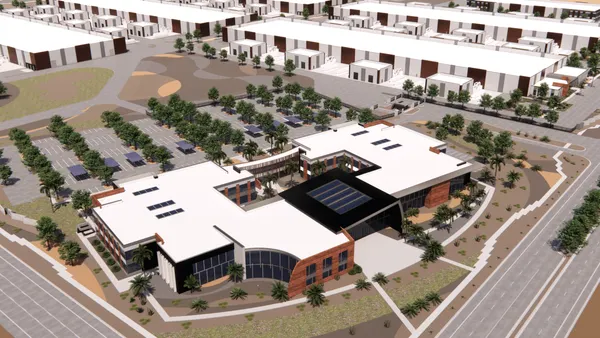Dive Brief:
- Rock-bottom oil prices are taking a "catastrophic" toll on California highway projects, as the loss in gas tax revenue has reached $1.1 billion, the San Jose Mercury News reported.
- Approximately 225 "shovel ready" projects are in danger of being canceled or subjected to years-long delays.
- At the heart of California’s transportation funding problem, in combination with low oil prices, is the state gas-tax swap scheme, which reduces the sales tax on gas as sales of gas fall, according to the Mercury News. Each cent decrease in tax represents a $149.2 million loss in funding, and the tax has dropped nine cents in the last two years, with another 2.2-cent drop expected by the summer.
Dive Insight:
To alleviate pressure on transportation funding, the State Transportation Plan has been cut by $754 million this year, the largest such reduction in almost 20 years. State officials anticipate they will slice another $328.3 million from the fund next year, according to the Mercury News.
Counties and municipalities are also chiming in with their frustration over cuts, complaining that they’ve invested time and money in transportation projects that will now not receive the expected state funding. Nevertheless, legislators are considering three proposals that would provide additional transportation funding, all involving an increase in the gas tax and raising anywhere from $3 billion to $7 billion a year. However, past attempts to increase the gas tax significantly have been unsuccessful.
New Jersey legislators are also considering raising the state gas tax to overcome transportation funding shortfalls. State officials have maxed out the $1 billion state transportation reserve, but Gov. Chris Christie said any increase to the gas tax must be balanced out by reductions elsewhere.
These shortfalls come at a time when the nation’s infrastructure is in critical need of an overhaul. In fact, an American Road and Transportation Builders Association 2015 study determined that 58,495 U.S. bridges are structurally deficient. The U.S. Department of Transportation said there is about a $115 billion backlog for repairs to those bridges, and, at the current rate of funding, it would take 21 years to replace or repair them as required.













